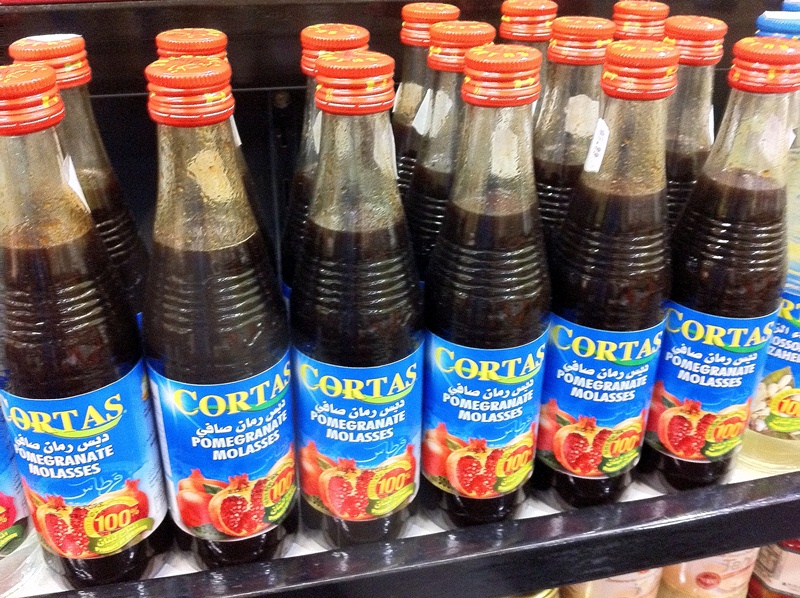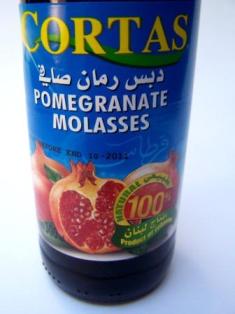Product review: Pomegranate molasses
Written by Catherine Saxelby
on Tuesday, 24 February 2009.
Tagged: juice, review

My taste buds died and woke up in flavour heaven! I've just bought my first bottle of pomegranate molasses and can't believe how magnificent the flavour is! How come I got to the ripe old age of 50-something and never ever sampled this before? Something as basic as a marinade for lamb, pork or chicken now sends me into raptures. A salad with a teaspoon of the molasses in the dressing has me drooling. Even sipping a ‘cordial' made pomegranate molasses in a glass of water is refreshingly divine.
I know you'll think I've gone insane but I've never tasted anything so sublime. Honestly. It's the combination of understated sweetness with that astringency that you only find in balsamic vinegar or too-strong tea (must be those amazing polyphenols - aka tannins - which the tea blenders tell me is what makes you mouth pucker).
When I first tasted a lick of pomegranate molasses, I got the sweet richness, then a tsunami of sharp piquancy hit me, followed by amazing undertones of butterscotch and caramel. It was just heavenly. The brand was Cortas from Lebanon from my fruit market for only A$6.99. A bottle lasts forever.
Flavour without fat

This is less than honey at 80 per cent or regular molasses at 96 per cent but on a par with blackcurrant cordial 56 per cent and more than lime juice cordial 40 per cent.
Pomegranate molasses is similar in carbohydrate content to pomegratate juice. The difference here is that a little goes a long way. You can't guzzle glasses of the molasses as you can with the juice.
I can flavour a whole glass of water with one teaspoon (5 g) which gives me 2.5 g of carbs. Not a lot really for so much flavour. Ditto for salad dressing and marinade. And there's not a skerrick of fat or salt.
Is it rich in antioxidants?
 Who knows for sure? I haven't spied one analysis in all the ORAC tables I've combed. No commercial company is out there paying for it to be done unlike the folk at Pom Wonderful. Interestingly it's one of those food finds that seems to have slipped under the analytical radar.
Who knows for sure? I haven't spied one analysis in all the ORAC tables I've combed. No commercial company is out there paying for it to be done unlike the folk at Pom Wonderful. Interestingly it's one of those food finds that seems to have slipped under the analytical radar.
With the boiling down of the juice to concentrate the syrup, any vitamin C and heat-sensitive antioxidants would be gone, I'm sure. But there may be well plenty of others still there. If the polyphenols can survive wine making and tea brewing, then they can doubtless survive molasses concentrating! I can taste that astringency so I'm fairly positive there's some antioxidants there. But I await confirmation one day.
The bottom line
Rather than dismissing it as something similar to blackcurrant juice, I now see why people go weak at the knees about pomegranate molasses and desire to add a touch to their cooking. And there's no reason why they shouldn't. It will certainly enhance their food and may add more healthy antioxidants to their intake.
Foodwatch
The Good Stuff
The Boring Stuff
© 2025 Foodwatch Australia. All rights reserved
Website by Joomstore eCommerce





